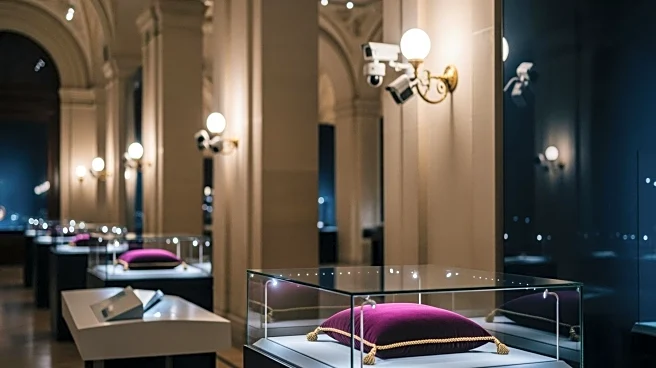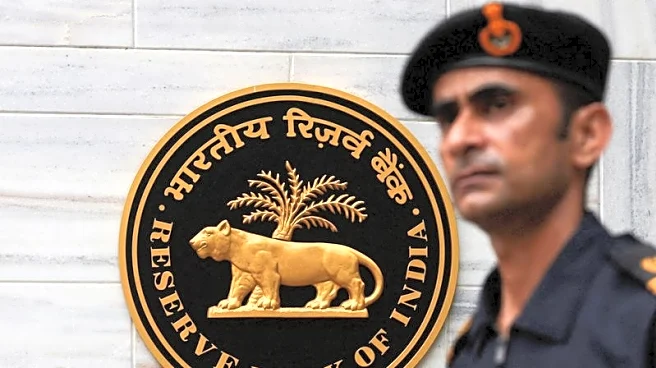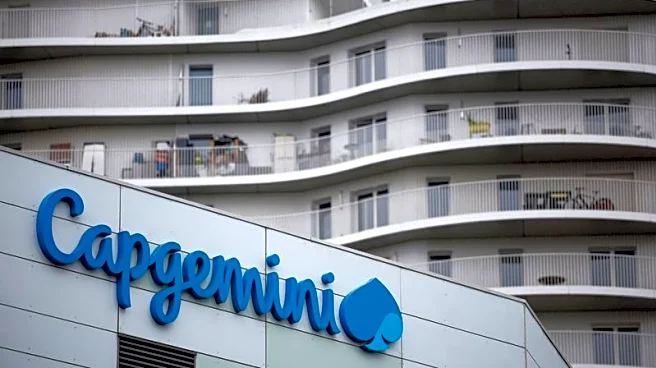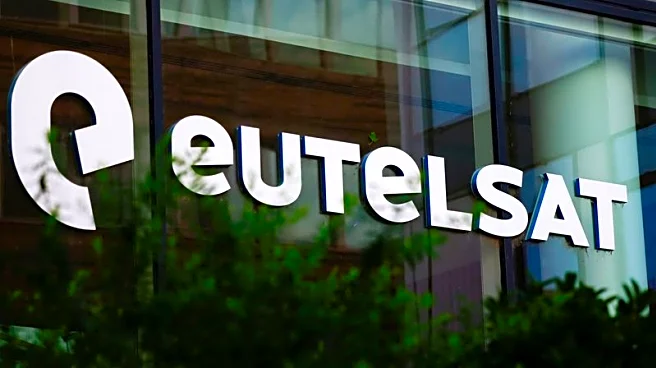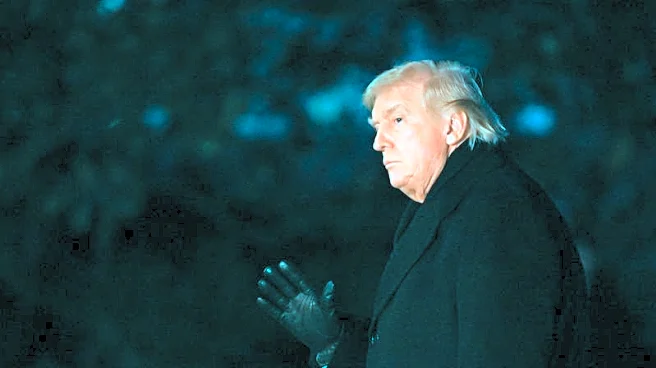What's Happening?
The Louvre Museum in Paris experienced a high-profile theft on October 19, 2025, when thieves stole priceless Napoleonic jewels from the Galerie d’Apollon. The heist, which lasted only four minutes, involved
perpetrators using a basket lift to access the museum through a window. The stolen items include nine pieces from a collection linked to Napoleon and Empress Eugénie. The theft occurred during public hours, with tourists present, and has raised significant concerns about security and staffing at the museum. The Louvre closed for the remainder of the day as police sealed gates and cleared nearby streets. Investigations are underway, with forensic teams examining the crime scene and reviewing CCTV footage.
Why It's Important?
This theft highlights vulnerabilities in museum security, particularly in institutions facing overcrowding and understaffing. The stolen jewels are of immense historical value, and their loss represents a significant cultural blow to France. The incident has sparked political debate, with criticism directed at President Emmanuel Macron's administration for perceived inadequacies in state security. The theft underscores the challenges faced by cultural institutions in balancing public access with the protection of valuable artifacts. The Louvre's ongoing struggle with mass tourism and staffing issues may have contributed to the security breach, prompting calls for improved measures to safeguard national treasures.
What's Next?
Authorities are conducting a thorough investigation to recover the stolen jewels and identify the perpetrators. The Louvre is expected to reassess its security protocols, particularly in areas undergoing construction, which may have facilitated the theft. The incident may lead to increased security measures and staffing at the museum to prevent future occurrences. Political leaders and cultural stakeholders are likely to engage in discussions about funding and resources needed to protect national heritage sites. The museum's planned modernization efforts, including the 'Louvre New Renaissance' initiative, may be expedited to address security concerns.
Beyond the Headlines
The theft raises ethical questions about the preservation and protection of cultural heritage. It highlights the tension between accessibility and security in public institutions, as well as the impact of tourism on cultural sites. The incident may prompt broader discussions about the role of museums in safeguarding history while remaining open to the public. Additionally, the theft could influence international standards for museum security and artifact protection.
